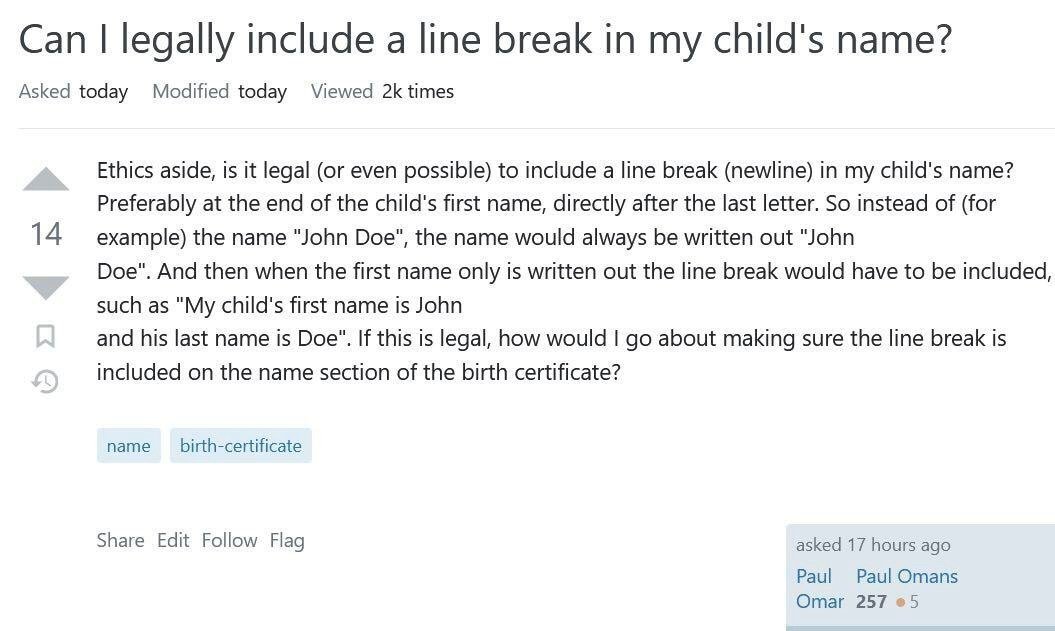this post was submitted on 16 Nov 2024
1068 points (99.2% liked)
Programmer Humor
19589 readers
542 users here now
Welcome to Programmer Humor!
This is a place where you can post jokes, memes, humor, etc. related to programming!
For sharing awful code theres also Programming Horror.
Rules
- Keep content in english
- No advertisements
- Posts must be related to programming or programmer topics
founded 1 year ago
MODERATORS
you are viewing a single comment's thread
view the rest of the comments
view the rest of the comments

Well, and remember: If in doubt, send them an e-mail. You probably want to do that anyways to ensure they have access to that mailbox.
You can try to use a regex as a basic sanity check, so they've not accidentally typed a completely different info into there, but the e-mail standard allows so many wild mail addresses, that your basic sanity check might as well be whether they've typed an
@into there.The regexes are written to comply with RFC 5332 and 6854
They are well defined and you can absolutely definitively check whether an address is allowable or not.
https://datatracker.ietf.org/doc/html/rfc5322
Yeah, I'm just saying that the benefit of using such a regex isn't massive (unless you're building a service which can't send a mail).
a@bis a syntactically correct e-mail address. Most combinations of letters, an @-symbol and more letters will be syntactically correct, which is what most typos will look like. The regex will only catch fringe cases, such as a user accidentally hitting the spacebar.And then, personally, I don't feel like it's worth pulling in one of those massive regexes (+ possibly a regex library) for most use-cases.